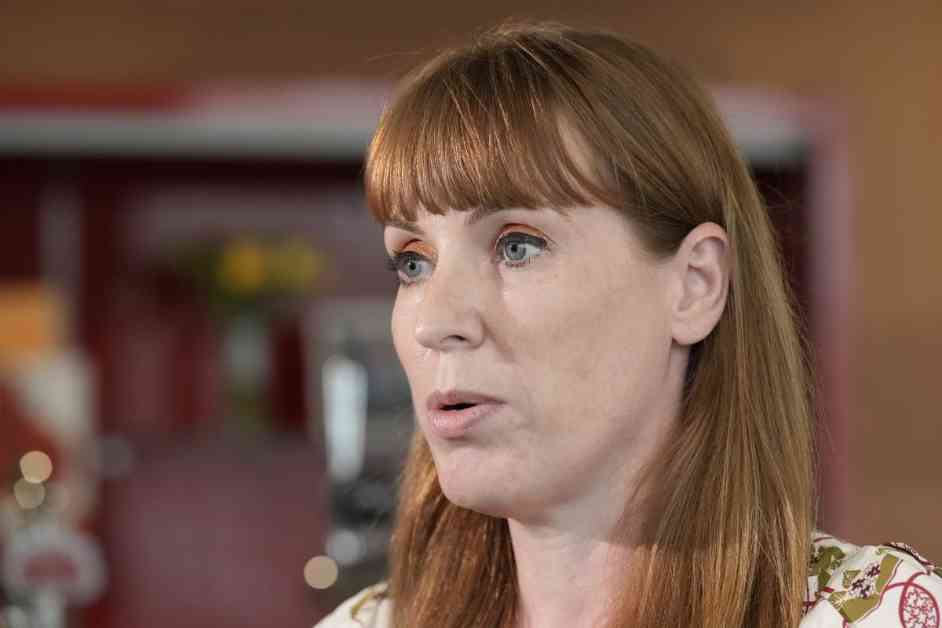Angela Rayner’s Pledge for Decent, Safe Homes
Deputy prime minister Angela Rayner made a compelling speech at the Labour party conference in Liverpool, outlining her commitment to ensuring that all individuals have access to decent, safe, and affordable housing. In her address, she highlighted the dire state of housing in the country and laid out a series of ambitious measures aimed at addressing the housing crisis.
Ms. Rayner’s speech focused on the need for urgent action to tackle issues such as disrepair, mould, damp, and fire safety concerns that plague many tenants across the UK. She emphasized that the Labour party has inherited a housing crisis from the Tories and pledged to take bold steps to rectify the situation.
Proposed Measures to Improve Housing Standards
One of the key announcements made by Ms. Rayner was the government’s plan to consult on a new Decent Homes Standard for both social and private renters. This standard aims to set clear guidelines for landlords to ensure that all rental properties meet minimum requirements for safety and livability.
Additionally, Labour will be moving forward with Awaab’s Law, legislation that imposes strict deadlines on social landlords to address issues like damp and mould in their properties. Ms. Rayner also promised to extend these protections to the private rented sector, ensuring that all tenants are afforded the same rights and safeguards.
Furthermore, the government plans to introduce new access to information requirements for social housing landlords, enabling tenants to hold them accountable for any breaches of the Decent Homes Standard. These measures are all part of Labour’s broader strategy to improve housing conditions and ensure that everyone has access to quality, affordable homes.
Remediation Acceleration Plan
In response to the Grenfell inquiry report, Ms. Rayner announced a Remediation Acceleration Plan aimed at expediting the removal of unsafe cladding from buildings. This initiative seeks to address the urgent safety concerns posed by combustible cladding materials and prioritize the well-being of residents living in affected properties.
The government aims to have all the proposed reforms in place by the summer of next year, pending parliamentary approval. These changes are crucial in ensuring that individuals living in substandard and unsafe homes are given the necessary support and protection to improve their living conditions.
Challenges and Criticisms
While Ms. Rayner’s speech was met with overall support from various housing advocacy groups, some critics have raised concerns about the timeline for implementing these reforms. Simon Francis, coordinator of the End Fuel Poverty Coalition, emphasized the need to prioritize energy efficiency standards in the private rented sector to prevent individuals from living in cold homes during the winter months.
Additionally, there are lingering issues related to the slow pace of remediation work on buildings with unsafe cladding, as highlighted by individuals like Mike Daine who have been waiting for years for action to be taken. The government must address these challenges promptly to ensure that vulnerable individuals are not left in unsafe living conditions.
Impact on Vulnerable Populations
Recent research conducted by Crisis and Lloyds bank sheds light on the detrimental effects of poor housing conditions on individuals waiting for social homes or living in council housing. The study found that a significant number of individuals were residing in accommodations that posed health risks due to issues like damp and mould.
One new mother described the challenges she faced in temporary accommodation, including infestations of fleas and inadequate living space for her child. These personal accounts underscore the urgent need for comprehensive reforms to improve housing standards and protect vulnerable populations from the harmful effects of substandard living conditions.
Call for Action
Polly Neate, chief executive of housing charity Shelter, commended the government for taking steps in the right direction but urged Ms. Rayner to set clear targets for the construction of social rent homes to address the housing emergency effectively. It is essential that the government continues to prioritize the well-being of all individuals by investing in safe and affordable housing options for those in need.
In conclusion, Angela Rayner’s pledge for decent, safe homes represents a significant step towards addressing the housing crisis in the UK. By implementing comprehensive reforms and prioritizing the well-being of tenants, the government can ensure that everyone has access to quality housing that meets essential standards of safety and livability. It is imperative that these initiatives are carried out promptly to improve the lives of individuals living in substandard conditions and create a more equitable housing landscape for all.












